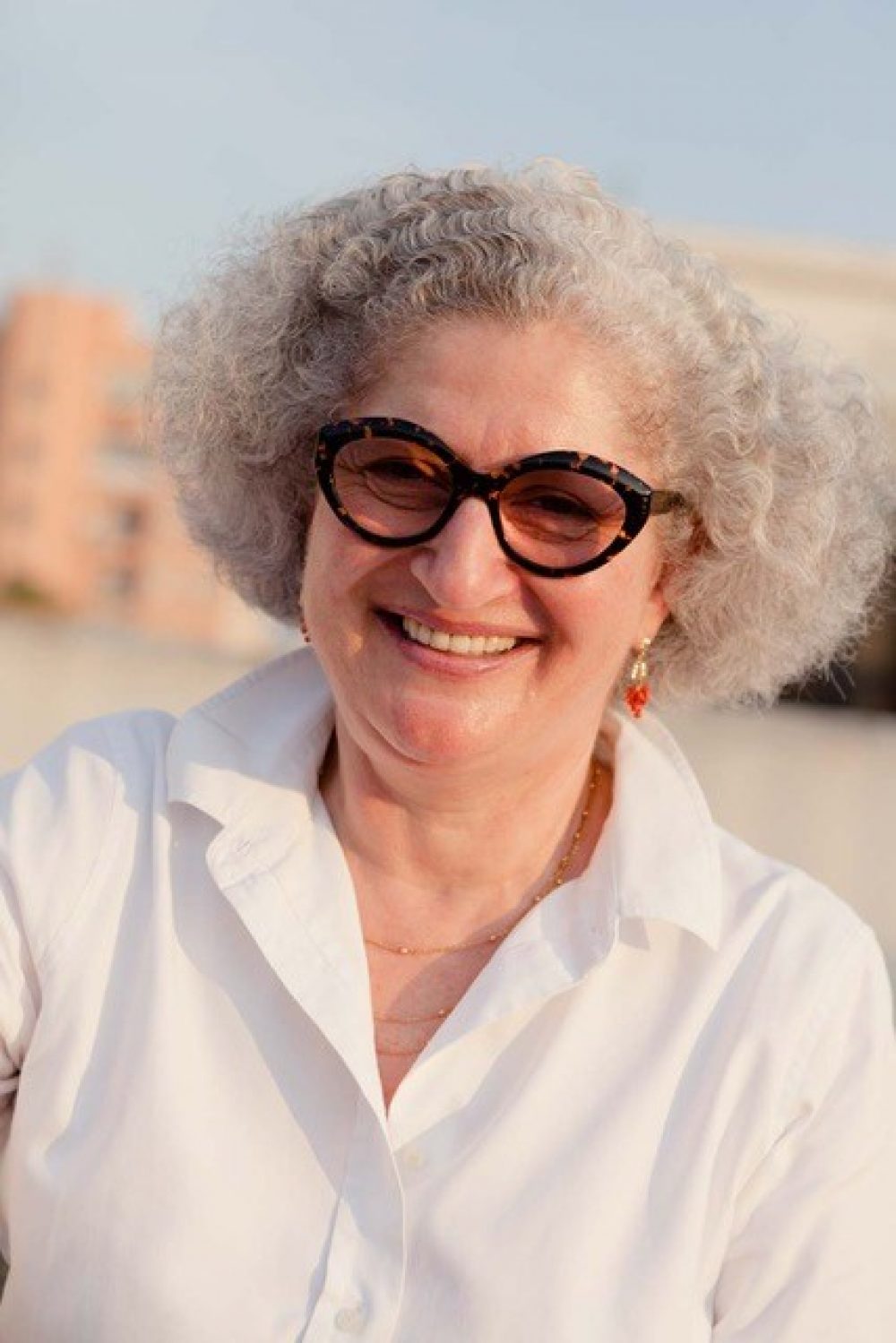“I was once told by a camel butcher in Syria that the reason people like to eat camel is that the camel is supposedly a monogamous animal and it's virtuous to eat it. I personally don't really believe in that, but it's a fun theory.” That’s Anissa Helou, cookbook writer and author of the beautiful “Feast: Food of the Islamic World” (which you can read more about here.)
When Helou spoke with us on Milk Street Radio, she told us about her home city of Beirut—what it was like growing up there and what it’s like today—as well as her current home in Sicily, and all the food in between. An authority on cuisine across the Middle East, Helou speaks about everything from the markets of Damascus—one called Souk el-Tanabel, which translates to market of the lazy people, sells things like precut vegetables and chopped parsley—to the secret for falafel that’s light and fluffy, as opposed to heavy and dense.
Check out some excerpts below, and listen to the full interview here on Milk Street Radio.
On Spice Blends: Making Your Own and Storing Them
You have za’atar, which is sort of the Arabian Gulf blend, which is a very complicated, complex blend, but not as complex as ras el hanout. You have garam masala, which is used in India and Pakistan, and actually, most of these are made in homes. In Lebanon and Syria, you have the seven spice mixture that is more bought then made at home… In Tunisia it's very simple because it's called baharat, which means spices, but it's cinnamon and dried rose petals ground together. [Spice blends] are essential. No home would be without one. They will buy the whole spices, wash them, dry them, and then grind them, usually ahead of Ramadan so that they have a fresh stock for Ramadan. Then they put the rest in the freezer for the rest of the year.
#MilkStreetTip: Buy spices whole, in bulk. Grind some for immediate use and freeze the rest for later.
On Camel Meat
It's a bit tough. Even for the baby camel, it would be a little bit stringy and maybe a touch gamier than beef or lamb. For me, it's like eating some meat that is a cross between lamb and beef. It's not as rich and as moist as lamb and it's not as dense as beef. But the most important things is that it’s a relatively tough meat.
On Falafel
If you're whizzing the raw pulses in a food processor, you get a mushy paste that's very difficult to kind of fluff up as you fry it. Whereas if you grind it, you get these tiny little pellets off the legumes. The cohesion of the paste is not the same. And also people add bicarbonate—baking soda—to the mixture just before frying so that they puff up a little bit. So as the falafels fry, instead of having a dense paste that doesn't move and puff up as much, you have this kind of slight eruption in the hot oil, and it's very fluffy inside.
On Weeknight Meals
It depends where I am and on the season, but let's say it’s the summer: I would buy beautiful vegetables. I would make a baba ganoush, for instance, by roasting aubergines (eggplant) and mashing them and mixing them with tahini and lemon juice, and maybe I'll make green beans in a tomato sauce. If I buy fish, I would grill it. It really depends on the season and where I am. But normally, day to day, I would cook very simply and very seasonally.
On Writing Cookbooks
It is more to preserve culinary traditions. That's how I started with my Lebanese cookbook—by wanting to write down my mother's recipes before she died. That was a long time ago and thank god she hasn't died yet, but also to have a cookbook that would be useful to all those young Lebanese people who were displaced by the civil war. And from that first book, I've been more interested in recording traditional recipes and preserving them for future generations—culinary lore and history. That's the purpose of my writing these books. With [“Feast: Food of the Islamic World”], it was also a kind of political act to counteract all this negative attitude to Islam and Muslim people.
Check out the latest from Milk Street Radio here.
The author of “Feast: Food of the Islamic World” shares her wisdom on Milk Street Radio
Anissa Helou on Fluffy Falafel, Camel Meat and Storing Spices
November 30, 2018




